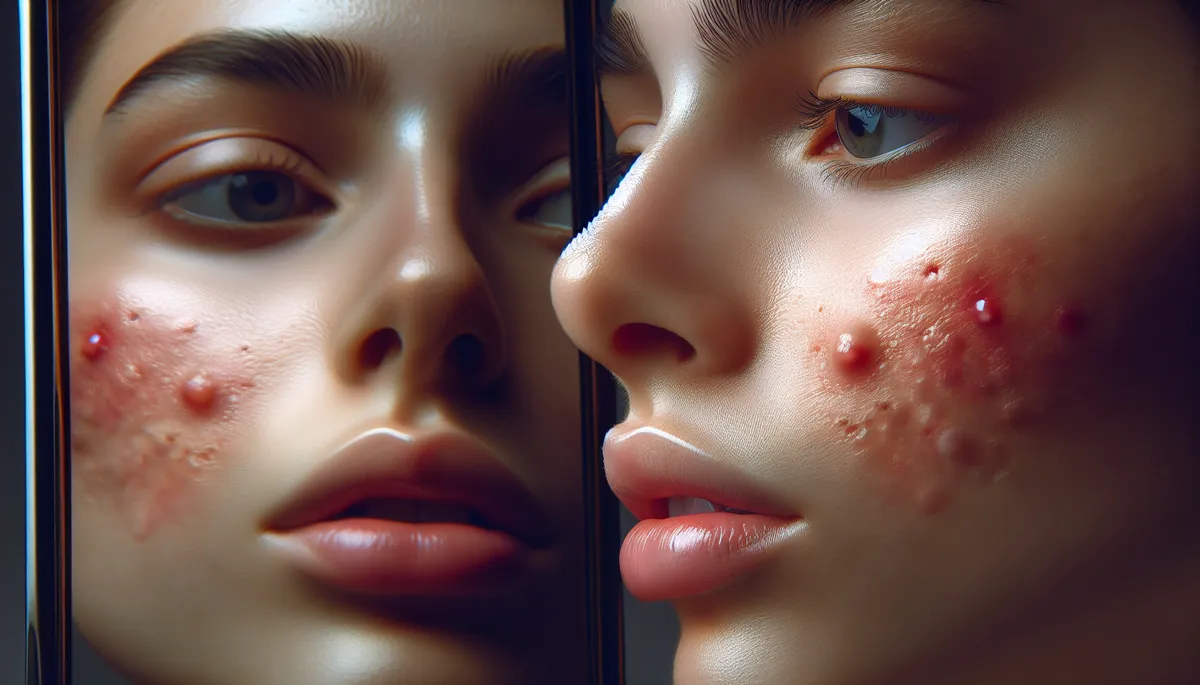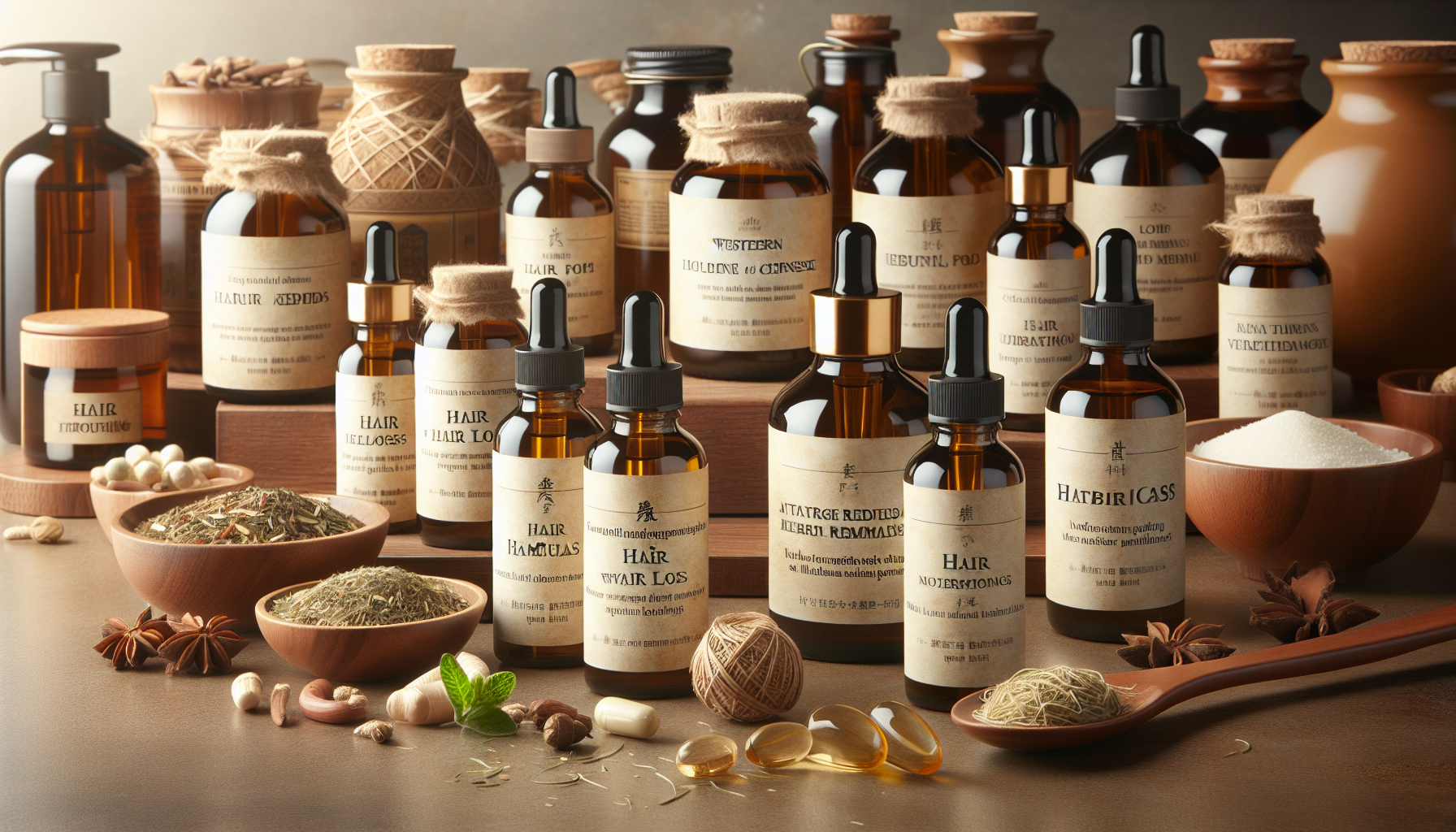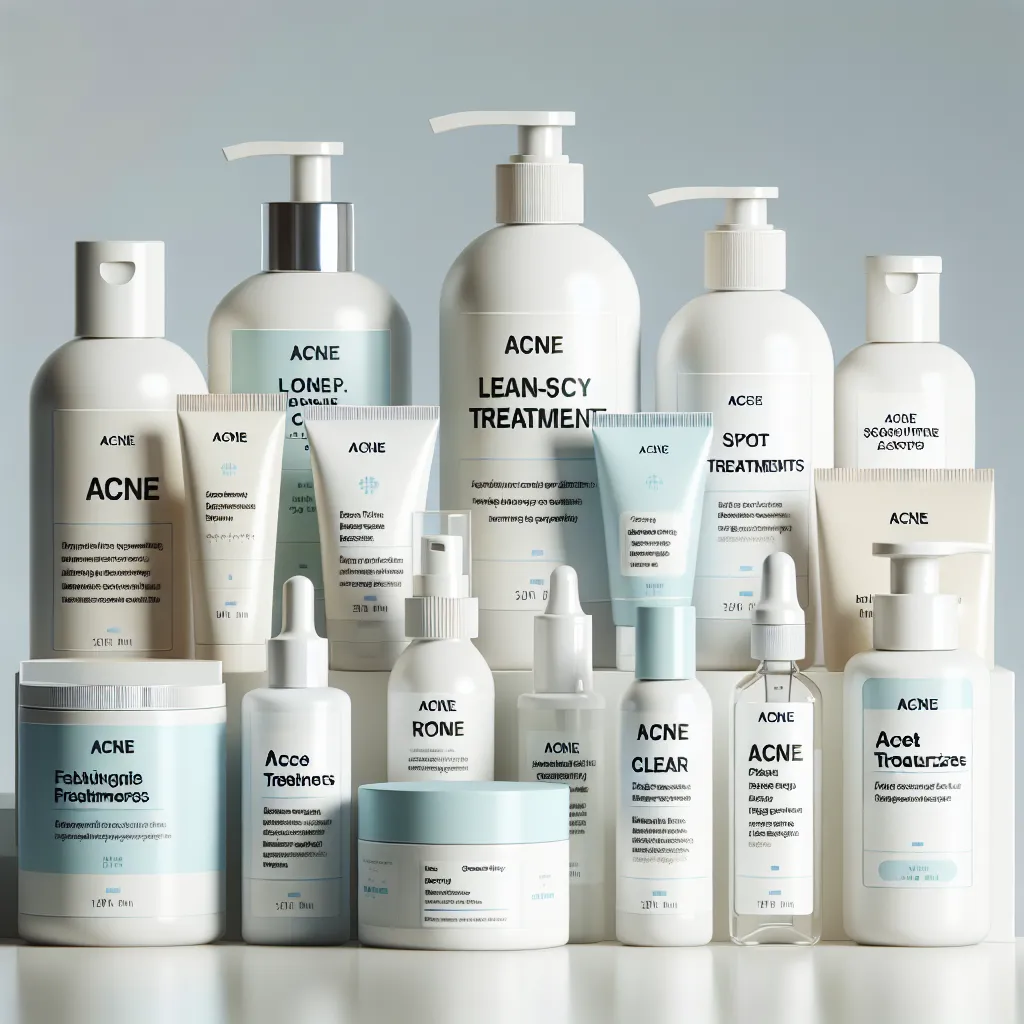How to clear up acne? Skip the miracle, get knowledgeable, be successful...
Skintegratit - How to clear up acne

Learn how to clear up acne with the 3-WCM integration:
Western herbal medicine, Chinese medicine and Modern, non-prescribed skincare preparations. Well...
If you're reading this, chances are you probably know by now...
Acne can be frustrating, especially if you've already tried a bunch of "quick fixes" that haven't delivered. But...
Know that! you're not alone...
This article is your guide to a comprehensive approach, combining the wisdom of herbal medicine, Chinese medicine, and modern skincare to get you real, lasting results.
We're going to dive deep into how to get rid of acne by understanding the root causes and tailoring your treatment accordingly. This isn't about one-size-fits-all solutions...
It's about figuring out what's really going on with your skin and creating a personalized plan that addresses your specific needs. Ready?
Whether you're dealing with stubborn forehead acne, annoying acne around your mouth and chin, or persistent back acne,
we'll explore how to remove acne effectively using a powerful 3-WCM integration. Sounds good?
Let's get started on your journey to clear skin!
First, let's talk about Western herbal medicine...
The "W" of the 3-WCM integration...
For centuries, people have turned to nature for remedies, and when it comes to acne, there are some powerful plant allies.
Western herbal medicine often focuses on internal imbalances that manifest as skin problems. A herbalist might diagnose your acne as stemming from excess heat, poor digestion, or hormonal fluctuations. So...
Depending on your diagnosis, herbal treatments might include cooling herbs like burdock root or dandelion, digestive aids like ginger or peppermint, or hormone-balancing herbs like chasteberry or red clover. But,
Western herbal medicine is more then just medicinal plants...
Dietary choices also matter. High-glycemic foods, dairy products, and processed foods can exacerbate acne in some individuals. So,
Dietary changes, like cutting back on sugar, dairy, and processed foods, are often recommended as well. Once again...
Western herbal medicine emphasizes the interconnectedness of the body's systems.
Acne isn't just a skin problem; it's often a reflection of deeper imbalances.
Stress, for example, can wreak havoc on your hormones and exacerbate acne. Herbalists may recommend adaptogenic herbs like ashwagandha or Rhodiola to help your body manage stress more effectively. Similarly,
Poor liver function can contribute to skin issues, so herbs like milk thistle or dandelion root may be incorporated to support detoxification. As you can see...
Delving deeper into Western herbal medicine, we find a treasure trove of acne-fighting plants, each with its unique properties.
Beyond the herbs mentioned earlier, consider the power of calendula, known for its soothing and anti-inflammatory properties, making it ideal for calming irritated skin and reducing redness. Also,
Tea tree oil, a potent antimicrobial, can help combat the bacteria that contribute to acne, while aloe vera offers its cooling and healing touch to promote skin regeneration. How would you know which one is best for you?
A skilled herbalist can guide you in selecting the right herbs and creating personalized blends tailored to your specific needs. Or...
If you're interested in immediately exploring a solution you can implement yourself that would be more precise for your diagnosis, check out: Acne Self-care: 4 Remedies to use at home. Four different assessments with a herbal remedy tailored to each one. See if any of them best fit your current situation. Basically,
Understanding the full spectrum of acne symptoms is crucial for effective treatment.
While pimples, blackheads, and whiteheads are the most visible signs, other symptoms can provide valuable clues about the underlying causes... Oh, and one more thing,
consider the emotional impact of acne...
Acne can affect self-esteem, confidence, and even lead to social anxiety. Addressing these emotional aspects is just as important as treating the physical manifestations. O.k...
Can we summarize now the philosophy of the "W": the Western herbal medicine from the 3-WCM integration?
By paying attention to your internal and external factors, you can gain a deeper understanding of your acne triggers and develop a holistic Western herbal medicine approach to clear up your acne.
This understanding empowers you to take control of your acne and improve your overall quality of life. But,
We're not going to stop here!
Clear skin is not just about aesthetics; it's about feeling confident, comfortable, and healthy in your own skin.
That's why we'll go farther...
We'll show you how to integrate this wisdom approach with another wisdom one. After all,
We need to make sure you're getting real, long lasting results. Next up:

Chinese medicine...
The "C" of the 3-WCM integration...
This ancient system views acne as an imbalance of Qi (energy) and blood flow. A Chinese medicine practitioner might diagnose your acne based on patterns of disharmony, such as damp-heat accumulation, lung heat, or spleen deficiency.
Treatments might involve Chinese herbal formulas, or dietary recommendations tailored to your specific pattern. For example,
If you have damp-heat, you might be advised to avoid greasy foods and consume cooling foods like cucumber and watermelon. Or...
If you have lung heat, you might be prescribed herbs like honeysuckle or chrysanthemum. Does it all sound like gibberish to you?
Let's break it down...
Damp-heat accumulation, as the name suggests, involves a combination of excess dampness and heat within the body.
This often manifests as inflamed, cystic acne, particularly around the nose, mouth, and chin.
You might also experience oily skin, a sticky feeling in the mouth, and a tendency towards digestive issues like bloating and loose stools. Also,
Emotionally, you might feel irritable and frustrated.
Your tongue might have a yellowish coating, and your pulse might be rapid and slippery.
Chinese medicine seeks to clear this damp-heat with herbs like honeysuckle, forsythia, and dandelion, combined with dietary adjustments to reduce dampness. Another common pattern is,
Lung Heat. This manifests as acne on the upper back, chest, and shoulders, often accompanied by redness and inflammation. Other symptoms might include a dry cough, sore throat, and a preference for cold drinks. And,
Emotionally, you might feel anxious or restless.
Your tongue might be red with a thin yellow coating, and your pulse might be rapid.
Chinese medicine addresses Lung Heat by clearing the heat and promoting fluid balance with herbs like chrysanthemum, mulberry leaf, and licorice root.
Lifestyle adjustments, such as stress reduction techniques, can also be beneficial. Let's uncover another Chinese medicine syndrome...
Spleen deficiency is another important pattern to consider. This involves a weakened digestive system, leading to a buildup of dampness and toxins that can manifest as acne, particularly around the mouth and chin.
The acne may be pale and less inflamed than in damp-heat.
You might also experience fatigue, bloating, loose stools, and a pale complexion.
Your tongue might be pale and puffy, and your pulse might be weak.
Chinese medicine aims to strengthen the spleen and resolve dampness with herbs like ginseng, atractylodes, and Poria.
Dietary changes, such as avoiding sugary and processed foods, are also crucial. Beyond these core patterns, other imbalances can contribute to acne. We'll cover it now,
Liver Qi stagnation can result from emotional stress and manifest as acne along the sides of the face and premenstrual breakouts.
Symptoms might include irritability, frustration, and breast tenderness.
Chinese medicine addresses Liver Qi stagnation by soothing the liver and promoting smooth Qi flow with herbs like bupleurum and white peony.
Stress management techniques, such as meditation or yoga, are also recommended.
Understanding these different patterns and their associated symptoms empowers you to develop a personalized treatment plan to address the root causes of your acne and achieve lasting clear skin. Remember,
If you're interested in immediately exploring a solution you can implement yourself, that would be more precise for your diagnosis, check out: Acne Self-care: 4 Remedies to use at home. Four different assessments with a herbal remedy tailored to each one. Each of the remedies contain two out of the 3-WCM integration: Western and Chinese herbal formulas.
You can see if any of the assessments best fit your current situation. But, as you know by now...
We're not going to stop here! As you saw...
Chinese medicine offers a different view of an holistic approach that considers your entire being, and not just the skin itself. But,
Now you'd better go even farther...
Let us show you how to integrate these 2-wisdom approaches with safe Modern science. As we can't stress this crucial point enough...
Clear skin is not just about aesthetics; it's about feeling confident, comfortable, and healthy in your own skin. So,
We definitely need to make sure you're getting real, long lasting results. Next up:
Modern skincare with non-prescribed acne preparations...

The "M" of the 3-WCM integration...
This is where we tackle the external factors contributing to your acne. Think cleansers, toners, spot treatments, and moisturizers.
The key here is to choose products that are appropriate for your skin type and acne severity.
For mild acne, a gentle cleanser and a non-comedogenic moisturizer might be all you need. However,
For more moderate acne, you might incorporate salicylic acid or benzoyl peroxide to unclog pores and kill bacteria. And,
For severe acne, retinoids can be a game-changer, but it's important to start slowly and follow your practitioner's instructions.
Navigating the world of non-prescribed acne products can feel overwhelming, but
understanding the key active ingredients can empower you to make informed choices. Let's uncover some of them...
Salicylic acid, a beta-hydroxy acid (BHA), is a superstar ingredient for acne-prone skin.
It works by exfoliating the skin's surface and penetrating pores to dissolve oil and debris, preventing breakouts before they start.
Look for cleansers, toners, and spot treatments containing salicylic acid in concentrations of 0.5% to 2%.
Benzoyl peroxide is another powerful acne-fighter, acting as an antiseptic to kill acne-causing bacteria.
It's available in various concentrations, from 2.5% to 10%, with higher percentages being more potent but potentially more irritating.
Start with a lower concentration and gradually increase as needed.
Beyond these workhorses, consider incorporating products with alpha-hydroxy acids (AHAs) like glycolic acid or lactic acid.
AHAs gently exfoliate the skin's surface, promoting cell turnover and revealing a brighter, smoother complexion.
They can also help fade acne scars and improve overall skin texture. Also,
Hyaluronic acid, a humectant, attracts and retains moisture, keeping your skin hydrated and preventing dryness, which can sometimes exacerbate acne.
Look for non-comedogenic moisturizers containing hyaluronic acid to keep your skin balanced and healthy. And,
Niacinamide, a form of vitamin B3, is a multi-tasking ingredient that can reduce inflammation, control oil production, and minimize the appearance of pores.
It's a great addition to your routine, especially if you have sensitive skin.
Choosing the right cleanser is crucial for setting the stage for clear skin.
Opt for a gentle, non-comedogenic cleanser that effectively removes dirt, oil, and makeup without stripping your skin's natural oils.
Avoid harsh cleansers that can irritate your skin and worsen acne. If you have oily skin, a foaming cleanser can help control excess oil. For dry or sensitive skin, a creamy or gel-based cleanser is a better choice. After cleansing,
A toner can help balance your skin's pH and prepare it for the next steps in your routine. Look for toners containing ingredients like salicylic acid or witch hazel to further combat acne.
Spot treatments are your targeted weapons against individual pimples.
Apply a small amount of a spot treatment containing salicylic acid or benzoyl peroxide directly to the blemish to help reduce inflammation and speed up healing. Oh, and yes...
Avoid picking or squeezing pimples, as this can lead to scarring and further breakouts.
Moisturizing is essential, even for oily skin.
A non-comedogenic moisturizer helps hydrate your skin and maintain its protective barrier.
Choose a lightweight, oil-free moisturizer if you have oily skin, and a richer cream if you have dry skin. And,
Sunscreen is a non-negotiable step!
It's true in any skincare routine, and especially if you're using acne treatments that can increase your skin's sensitivity to the sun.
Opt for a broad-spectrum sunscreen with an SPF of 30 or higher and apply it every morning, even on cloudy days. but, then again...
Make sure you use a non-comedogenic Sunscreen. So,
How To Clear Up Acne?
Strait and simple,
Skip the mirracle of "quick fix" best product promises...
The real magic happens with smart 3-WCM integration... In other words,
Just skintegratit! Remember,
Finding the best acne treatment for you requires understanding your individual needs. And,
Don't get discouraged if one approach doesn't work perfectly right away. It's all about finding the right combination that addresses your unique situation.
The key takeaway?
There's no one-size-fits-all answer to how to clear up acne. It's about understanding your individual diagnosis and tailoring your treatment accordingly.
Remember, this is just a starting point.
A well-planned comprehensive diagnosis is crucial for developing a personalized plan that addresses your specific needs and helps you achieve lasting clear skin.
Finding the right balance of treatments can be a game-changer in your journey to clear skin.
By the 3-WCM integration: Western herbal medicine, Chinese medicine, and modern skincare, you can address the root causes of your acne from multiple angles. Important,
Don't get discouraged if you don't see results overnight. Be consistent...
Clearing up acne takes time and consistency. Be patient with yourself, and
Celebrate the small victories. They lead your way to a long-term solution.
Speaking of long-term solutions, let's reiterate the importance of an integrated approach...
While individual treatments can be helpful,
Combining the wisdom of Western herbal medicine, Chinese medicine, and Modern skincare can provide a synergistic effect.
Each discipline brings its own unique strengths to the table, and
when combined,
They create a powerful force against acne.
This holistic approach can be the key to finally achieving the clear skin you've been striving for. So,
How to remove acne effectively? Integrate, integrate, integrate! And remember,
The best acne treatment is the one that works for you.
There's no one-size-fits-all solution. It's about finding the right combination of treatments that addresses your individual needs and helps you achieve lasting results.
Don't give up on your quest for clear skin. With the right approach, you can achieve the healthy, radiant complexion you've always wanted.
Be patient, be persistent, and be kind to yourself along the way. You deserve it.
And remember, you're not alone in this journey.
Millions of people struggle with acne, and we are here to help you every step of the way. So
Take a deep breath, embrace this holistic approach, and get ready to say hello to clear skin! Remember,
Learning how to clear up acne is a journey, not a destination.
By integrating the 3-WCM powerful approaches – Western herbal medicine, Chinese medicine, and Modern skincare – you can address the root causes of your acne and achieve lasting results. So,
Take charge of your skin health today, and get ready to unveil your most radiant self!
Valuable Info & More Resources For
Acne
Modern Skincare:
2. American Academy of Dermatology (AAD): The AAD offers comprehensive articles on acne, its causes, symptoms, and treatments, all reviewed by board-certified dermatologists.
Herbal Medicine:
3. National Institute of Health's National Center for Complementary and Integrative Health (NCCIH): The NCCIH provides evidence-based information on complementary and alternative medicine, including herbal remedies. They have resources on safety, efficacy, and potential interactions.
Chinese Medicine:
4. National Center for Biotechnology Information (NCBI) - PubMed: This database allows you to search for scientific studies on Chinese medicine for eczema. Look for clinical trials and systematic reviews for the most reliable evidence.